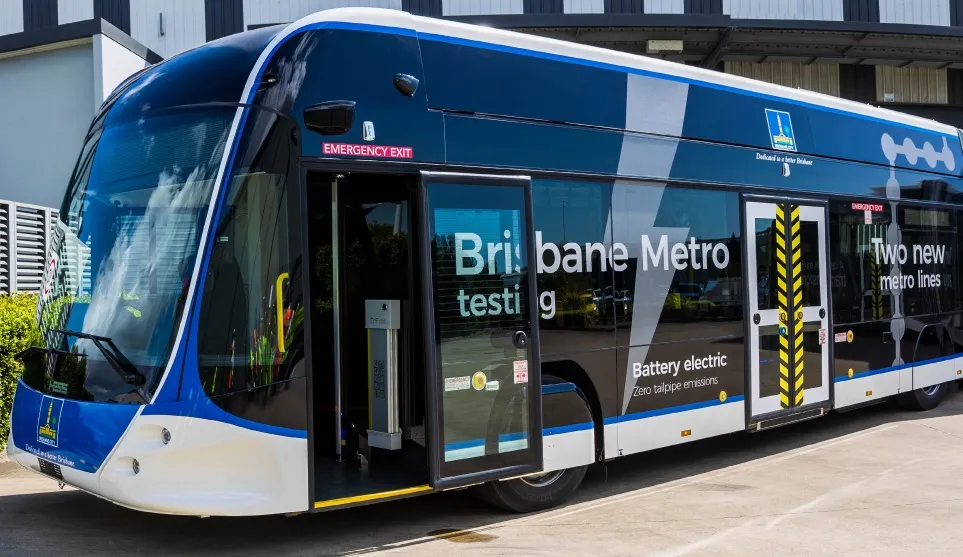The long-awaited overhaul to the Haifa metropolitan area’s public transportation system begins to take shape this week, as a portion of the extensive Metronit bus rapid transit (BRT) project starts to hit the roads throughout the region. Making use of approximately 40 kilometres of exclusive BRT lanes, the low-to-the-ground and high capacity Metronit aims for efficiency and convenience with its 84 efficient diesel and six hybrid vehicles, according to the Transportation Ministry. The first buses will appear
July 22, 2013
Read time: 2 mins
The long-awaited overhaul to the Haifa metropolitan area’s public transportation system begins to take shape this week, as a portion of the extensive Metronit bus rapid transit (BRT) project starts to hit the roads throughout the region.
Making use of approximately 40 kilometres of exclusive BRT lanes, the low-to-the-ground and high capacity Metronit aims for efficiency and convenience with its 84 efficient diesel and six hybrid vehicles, according to the Transportation Ministry.
The first buses will appear on Haifa’s transportation routes on 26 July; all 90 buses, together with 143 new platforms, upgraded above-ground and underground infrastructure and electronic ticketing systems will be in operation by early August.
“The Haifa metropolitan region is continuously evolving and the launch of the Metronit is an important part of the city’s development,” said Haifa Mayor Yona Yahav. “The municipalities were full partners in the Metronit project and in improving the entire public transportation system in the region. We will continue to work toward improving resident services and public transportation, which is an important component of such service.”
Making use of approximately 40 kilometres of exclusive BRT lanes, the low-to-the-ground and high capacity Metronit aims for efficiency and convenience with its 84 efficient diesel and six hybrid vehicles, according to the Transportation Ministry.
The first buses will appear on Haifa’s transportation routes on 26 July; all 90 buses, together with 143 new platforms, upgraded above-ground and underground infrastructure and electronic ticketing systems will be in operation by early August.
“The Haifa metropolitan region is continuously evolving and the launch of the Metronit is an important part of the city’s development,” said Haifa Mayor Yona Yahav. “The municipalities were full partners in the Metronit project and in improving the entire public transportation system in the region. We will continue to work toward improving resident services and public transportation, which is an important component of such service.”









